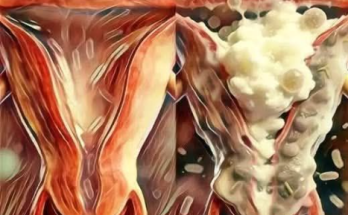“At the Hands of Her”
The rain had started just after dusk, soft and steady, like the sky was mourning something it hadn’t yet spoken aloud. In the small town of Kamboro, nestled between the hills and the river, the news spread faster than the storm: Lira was dead.
She was twenty-three. Bright-eyed, sharp-tongued, and full of contradictions. She wore her heart like armor and her secrets like silk. Everyone knew her, or thought they did. She worked at the local library, ran a small podcast about forgotten women in history, and had recently started a community garden that bloomed with more than just vegetables—it bloomed with hope.
But hope, it seemed, had enemies.
The official report was vague. “Died under suspicious circumstances,” it read. But the whispers said more. They said she was killed. And not by a stranger. By someone she trusted. By someone she loved.
Her name was Mara.
Mara had been Lira’s best friend since childhood. They were inseparable—two halves of a whole, people said. Where Lira was fire, Mara was ice. Where Lira spoke, Mara listened. They balanced each other, like the moon and the tide.
But something had shifted in the last year. Lira had grown louder, bolder. She’d started speaking out against the town’s quiet injustices—land deals that displaced families, school policies that punished the poor, and the mayor’s suspicious ties to a mining company. Mara, whose father was on the town council, had begged her to stop.
“You’re making enemies,” she’d warned.
“I’m making change,” Lira had replied.
Their friendship strained under the weight of their convictions. And then came the night of the town hall meeting.
Lira stood up and accused Mara’s father of corruption. She had documents, recordings, proof. The room erupted. Mara left in tears. Lira left in triumph.
Three days later, Lira was found in the garden she’d built, her body curled like a question mark, her eyes wide open to the sky.
The investigation was swift and shallow. No arrests. No charges. Just silence.
But the town wasn’t silent. They talked. They speculated. And slowly, the story took shape—not in the courtroom, but in the hearts of those who knew them.
Mara had been seen near the garden that night. Her car parked two blocks away. Her phone pinged near the scene. She had motive. She had rage. But she also had grief.
At the memorial, Mara stood alone. She didn’t speak. She didn’t cry. She simply placed a single white lily on the casket and walked away.
Some said that was guilt. Others said it was love.
But the truth, as always, was more complicated.
Months passed. The garden wilted. The podcast went silent. But Lira’s story didn’t die. It grew. Young women in town began organizing. They demanded transparency. They held vigils. They planted lilies in the garden, one for every injustice Lira had tried to fight.
And Mara? She disappeared. Moved away, they said. Started over.
Until one day, a letter arrived at the library. No return address. Just a single sentence inside:
“She died at the hands of her silence.”
It was signed: M.
The town didn’t know what to make of it. Was it a confession? A lament? A warning?
But Phirun, here’s where the story turns inward.
Because this isn’t just about Lira and Mara. It’s about every woman who’s spoken truth and paid the price. It’s about the fragile line between love and betrayal, between justice and vengeance. It’s about how silence can be as deadly as a weapon, and how grief can twist into something unrecognizable.
In the end, the garden was rebuilt. Not by the town, but by the women Lira had inspired. They planted roses, sunflowers, and lilies. They named it “The Garden of Her Voice.” And at its center, they placed a plaque:
“For Lira. Who spoke. Who fought. Who bloomed.”
And beneath it, in smaller letters:
“And for Mara. Who reminds us that silence is never neutral.”


